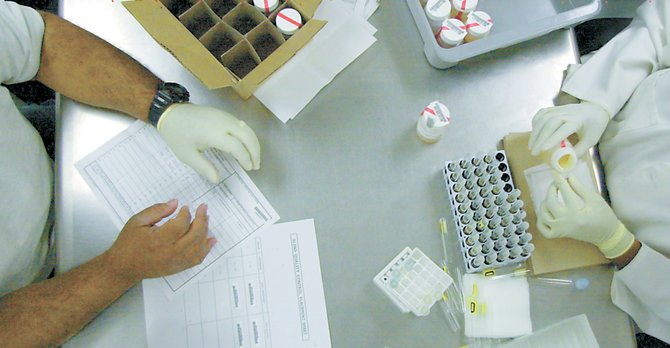On Sept. 10, the State of Mississippi started screening first-time applicants to Temporary Assistance for Needy Families, a federal program in states providing assistance for low-income families.
True or False: I have been tempted to leave home.
True or False: Most people will laugh at a joke at times.
True or False: I always feel sure of myself.
True or False: I am usually a happy person.
True or False: I am restless person.
Depending on how you answer these questions and about 90 others, you just might be on drugs, according to an assessment the State of Mississippi is requiring of some people applying for government benefits.
On Sept. 10, Mississippi Department of Human Services started randomly administering Substance Abuse Subtle Screening Inventory, or SASSI, assessment to first-time applicants to Temporary Assistance for Needy Families, a federal program administered by states that provides monthly assistance for low-income families.
The regulation outlines the process and highlights the concerns of opponents:
"The questionnaire must be completed prior to approval of a TANF application. Refusal of the adult to submit to the questionnaire will lead to denial of the TANF application. If results of the questionnaire indicate the reasonable likelihood that abuse of a controlled substance exists, the adult will be required to take a drug test."
The requirement resulted from a law that conservative lawmakers in Mississippi have proposed for several years and, finally, succeeded in passing earlier this year.
Civil-liberties groups and Democratic budget-watchers immediately called foul on the proposal that they argued discriminates against poor and is potentially costly. After a public hearing, the Mississippi chapter of the American Civil Liberties Union helped modify for the new regulation, but Charles Irvin, the ACLU's legal director, says several organizations still have concerns.
Calling the screening requirement a "disgusting framework" that targets the poor, Irvin said the ACLU wanted to eliminate SASSI, developed by the Indiana-based SASSI Institute, as the testing instrument.
Irvin said SASSI tests are typically administered in clinical settings to people who voluntarily seek drug treatment; giving the test to TANF applicants could skew the results, he said.
Irvin added that the ACLU remains unclear on who would pay for the required drug treatment in the event a TANF recipient tests positive. In the Jackson metro, a drug-treatment program can cost up to $16,000 per person.
"With a figure that large, we need to know how that's going to affect people who are already receiving benefits," Irvin said.
DHS also revised its rules to specify that children would not lose coverage by Temporary Assistance for Needy Families if a parent fails a drug test. Under the updated rules, the benefits can be transferred to so-called "protective payee," or third-party stand-in for the parent.
Around 4,300 adults and 12,900 children in Mississippi received TANF benefits in May, and each family received $67.94 for an individual on average and $139.65 for a family, although the family size was not specified.
Drug testing of TANF recipients has gained momentum the past couple years, such as in statehouses in Florida, Utah and Georgia. During Florida's rollout, questions arose about Gov. Rick Scott's relationship to a chain of urgent-care centers he co-founded that offered drug testing services.
So far, DHS has not submitted a request for bids for a third-party administrator for either screening or testing of TANF recipients. Under the rules, DHS case managers will administer the SASSI assessment.
In another states, Utah, officials wondered about the economic sense of that state's drug-testing program for welfare recipients. There, a state agency found that the state spent $30,000 the first year and found 12 people who tested positive for drug use.
"The amount of energy and funding you're putting into this relatively small pool, is it worth it to the state?" the ACLU's Irvin asked. "It doesn't seem like a wise decision to me."



Comments
Use the comment form below to begin a discussion about this content.
comments powered by Disqus